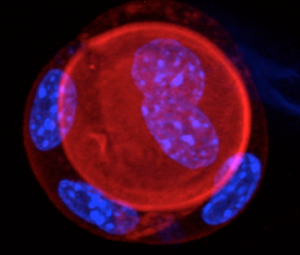Organoids: Advances and Applications
9–11 September 2024
Wellcome Genome Campus, UK and online
Highlighting improved functionality and large-scale approaches
Summary
Organoids have revolutionised biology and the development of organoid model systems continues to open up opportunities across a wide range of research areas.
Our 2nd organoids conference will explore novel ways in which complexity is being engineered into these multiple organ-specific cell types to increase their organ-like functionality. The meeting will also highlight research on tissue morphogenesis, and how complex systems, such as those in development, are being modelled. Enhanced analytic methods and techniques to visualise these 3D cellular structures on a large scale will also be discussed.
By bringing together researchers working across organ systems and using complementary methods, this event aims to promote multidisciplinary knowledge-sharing so that recent developments can be applied to parallel systems.
In addition to talks by global leaders in the field, the programme will also include podium presentations selected from abstracts submitted on the broad themes of the conference. Posters and poster-pitch talks will provide opportunities to present research findings, or get feedback on ongoing projects.
There will be plenty of opportunities to establish collaborations through face-to-face networking with inclusive meals, and optional on-site accommodation.
Programme
The conference will run from approximately 12:30 BST on Monday 9 September 2024 until 14:00 on Wednesday 11 September.
Discussions will focus on a variety of exciting topics, including:
- Engineering complexity
- Complex interfaces
- Tissue morphogenesis
- Tissue scale imaging
- Large scale profiling
- Computational modelling
Organisers and speakers
Scientific programme committee
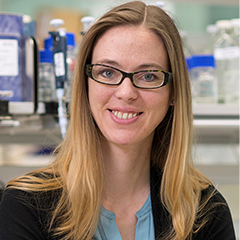
Madeline Lancaster
MRC Laboratory of Molecular Biology, UK
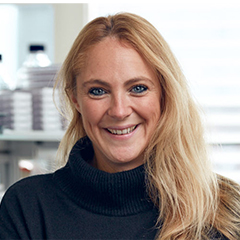
Prisca Liberali
Friedrich Miescher Institute, Switzerland
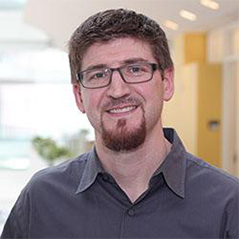
Jason Spence
University of Michigan, USA

Ludovic Vallier
Berlin Institute of Health, Germany
Keynote speakers

Goncalo Castelo-Branco
Karolinska Institute, Sweden
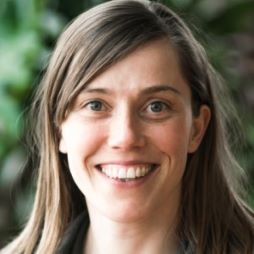
Barbara Treutlein
ETH Zürich, Switzerland
Confirmed speakers

Giovanni D'Angelo
EPFL, Switzerland
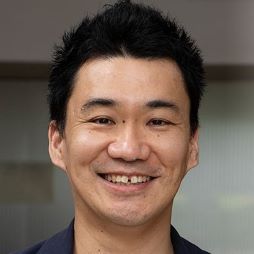
Masaya Hagiwara
Riken BDR, Japan

Edouard Hannezo
Institute of Science and Technology, Austria
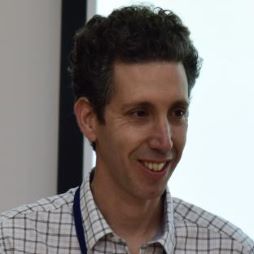
Eyal Karzbrun
Weizmann Institute of Science Department of Molecular Genetics, Israel

Kate McDole
MRC Laboratory of Molecular Biology, UK

Naomi Moris
Francis Crick Institute, UK

Ewa Paluch
University of Cambridge, UK

Shahin Rafii
Weill Cornell University, USA

Maria Rodriguez Colman
UMC Utrecht, Netherlands

Loic Royer
Chan Zuckerberg Biohub, USA

Jesse Veenvliet
Max Planck Institute of Molecular Cell Biology and Genetics, Germany
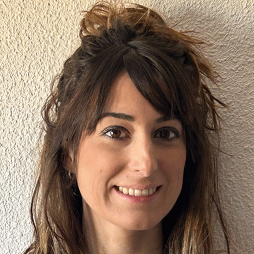
Roser Vento-Tormo
Wellcome Sanger Institute, UK
Organisers - Wellcome Connecting Science
Amanda Fletcher – Event organiser
Jane Murphy – Programme developer
Registration and bursaries
Registration deadline: 13 August 2024 (in person) | 2 September 2024 (virtual)
Deadlines close at 23.59 BST
| In-person Registration |
Fee |
| Student/trainee | £396 |
| Academic/non-profit organisation | £496 |
| Healthcare professional | £496 |
| Commercial/for-profit organisation | £596 |
| Onsite accommodation | £204 |
The in-person registration fee includes:
- Full access to scientific programme: oral and poster presentations, and networking on campus
- Access to the online conference portal to network with online participants
- Meals (lunch and dinner) and refreshments during the conference. Breakfast will be provided for delegates who have booked onsite accommodation.
- Recordings of the live-stream sessions, which will be available ‘on-demand’ for four weeks after the event ends
| Virtual Registration | Fee |
| Delegates from LMICs* | Free |
| Student/trainee | £55 |
| Academic/non-profit organisation | £105 |
| Healthcare professional | £105 |
| Commercial/for-profit organisation | £165 |
Virtual registration fee includes:
- Access to the virtual event portal (Log in details will be emailed a few days before the event starts)
- Live-stream sessions, including posters and online networking channels
- Recordings of the live-stream sessions, available ‘on-demand’ for four weeks after the event ends.
* To promote more inclusive scientific discussions with international colleagues at our conferences, virtual delegates based in Lower and Middle-Income Countries can register for free (see list of countries here).
If you are an editor or journalist, please contact the conference organiser for more information about the discounted fee.
Accommodation
Booked accommodation is for the nights of 9 and 10 September 2024.
Please note: there is limited onsite accommodation and this will be allocated on a first-come, first-served basis; therefore, early registration is recommended. If you wish to book campus accommodation either side of the conference dates, please contact the Hinxton Hall Conference Centre directly.
Accommodation services phishing scam – please be vigilant. More information.
Travel visas
Citizens of many countries can travel to the UK for a course without needing a visa.
Please check the UK government website for visitor information
https://www.gov.uk/standard-visitor.
Confirmed attendees requiring a letter to support a visa application should contact the conference organiser.
Financial assistance
Bursary deadline: 18 June 2024 at 23.59 BST
Wellcome Connecting Science offers registration bursaries (usually 50% of the registration fee) to those who would benefit from training but face financial barriers to attending events.
Bursary applications need to be completed in the online course application form before the deadline. Please be prepared to explain why you are applying for funding and to answer questions about your work. Submit your application before the bursary deadline to ensure it is considered.
Additional funding opportunities
Visit our support page for information on financial support, including carer grants to help delegates with the costs of caring for children or dependent family members while attending a course or a conference.
Abstracts
Abstract deadline: 2 July 2024 at 23.59 BST
We welcome abstracts from all areas relevant to the main themes of the meeting, for both oral and poster presentations. Several oral presentations will be chosen from the abstracts submitted. Presenters of oral presentations are expected to be onsite for the duration of the conference, whereas those presenting posters can do so in person or virtually.
Abstracts will only be considered from registered delegates. Please use our online abstract submission system and follow the instructions given to ensure your abstract is submitted correctly. All abstracts must be submitted by the deadline. You can make changes to your submitted abstract before of the deadline by logging into your account and following the instructions.
If you have already completed your registration and subsequently wish to submit an abstract, or wish to submit a second abstract, please follow these instructions.
The scientific programme committee will assess your abstract after the deadline has passed and you will be notified whether you have been selected to present an oral or poster presentation.
Poster boards onsite will accommodate 118 cm high by 84 cm wide (A0-portrait) of printed material. Accepted abstracts will appear in the conference programme book; poster board numbers will be allocated at the conference. All those accepted for a poster presentation will be given the opportunity to upload a short video describing their work.
Sponsors
If you are interested in supporting this meeting, please contact us.
For more information about the benefits of having a presence at this meeting, see our sponsorship page.
Testimonials
Feedback from our Organoids: Advances and Applications 2021 virtual conference:
‘There were a few talks and topics that I found particularly interesting as closer to the area of interest of my research. However, more generally, I think that the best aspect of the conference was covering so many different aspects of organoid biology from the technical aspects of their development/engineering to the biological discoveries’.
‘I received some interesting input on new possible employment of these 3D systems in many different aspects of cell biology evaluation’.
‘I found really enjoyable the talks regarding the latest improvements in organoid cultures’.
‘I liked the idea of the lighting talks, it helps having a good oral and visual summary of the posters’.
